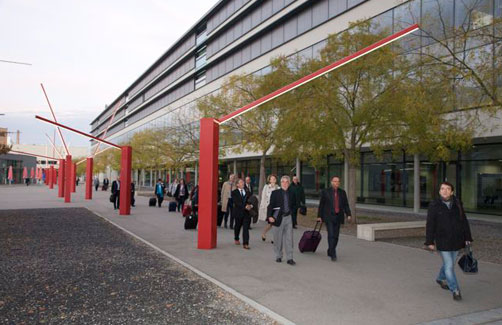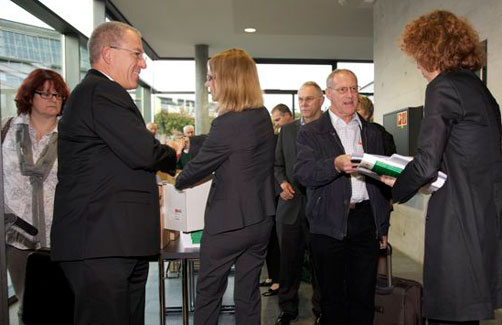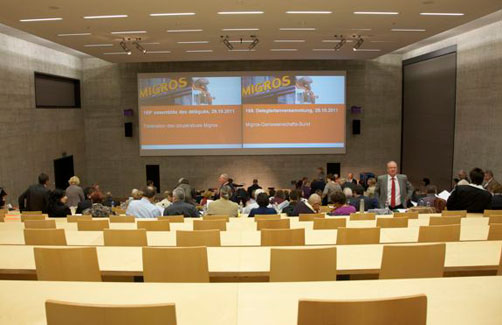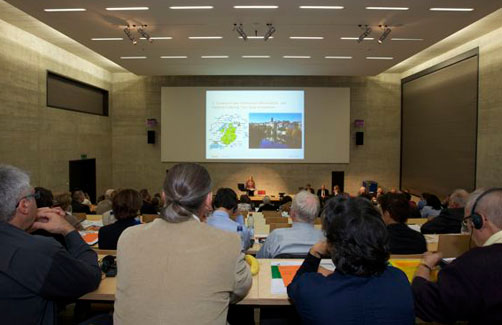




The 2011 Assembly of Delegates
Last year the Assembly of Delegates met twice. In addition to its normal business, various specialist presentations and discussions were held.
In its spring meeting, the 2011 Assembly of Delegates discussed its statutory matters. In addition, the delegates approved a project loan as part of the Migros Culture Percentage. With an interactive museum, Migros’ history is to become tangible. Finally, the delegates approved new voting regulations, which specify a transparent evaluation process for the appointment of the Board of Directors and the committees of the Board of Directors and Assembly of Delegates. This voting procedure will apply for the new elections of 2012 for the first time.
In the autumn meeting, which was held in Fribourg, the delegates approved applications to supplement the task of the Annual Report work group and to strengthen the cooperatives. An application from some delegates to introduce an income gap was dismissed. On the previous day, the delegates also visited the new cheese cellars of Mifroma SA Ursy.
Composition and competences
In accordance with the statutes, the Assembly of Delegates comprises 100 delegates, who are selected from the regional cooperatives on the basis of a specified quota, together with 10 representatives of the boards of directors of the 10 cooperatives and a president.
The principal powers of the Assembly of Delegates include defining and amending the statutes, electing and dismissing members of the Board of Directors, taking the decision to wind up the FMC, approving the annual report and annual financial statements, ratifying the actions of the Board of Directors and the Executive Board, and electing and dismissing the Board of Control.
The Assembly of Delegates has its own office (Office of the Assembly of Delegates) and permanent working groups Aid Fund and Board of Directors’ Annual Report, whose duties and organisation are regulated by the rules of organisation of the Assembly of Delegates and by mandates. The Assembly may also set up ad-hoc work groups to deal with temporary assignments.